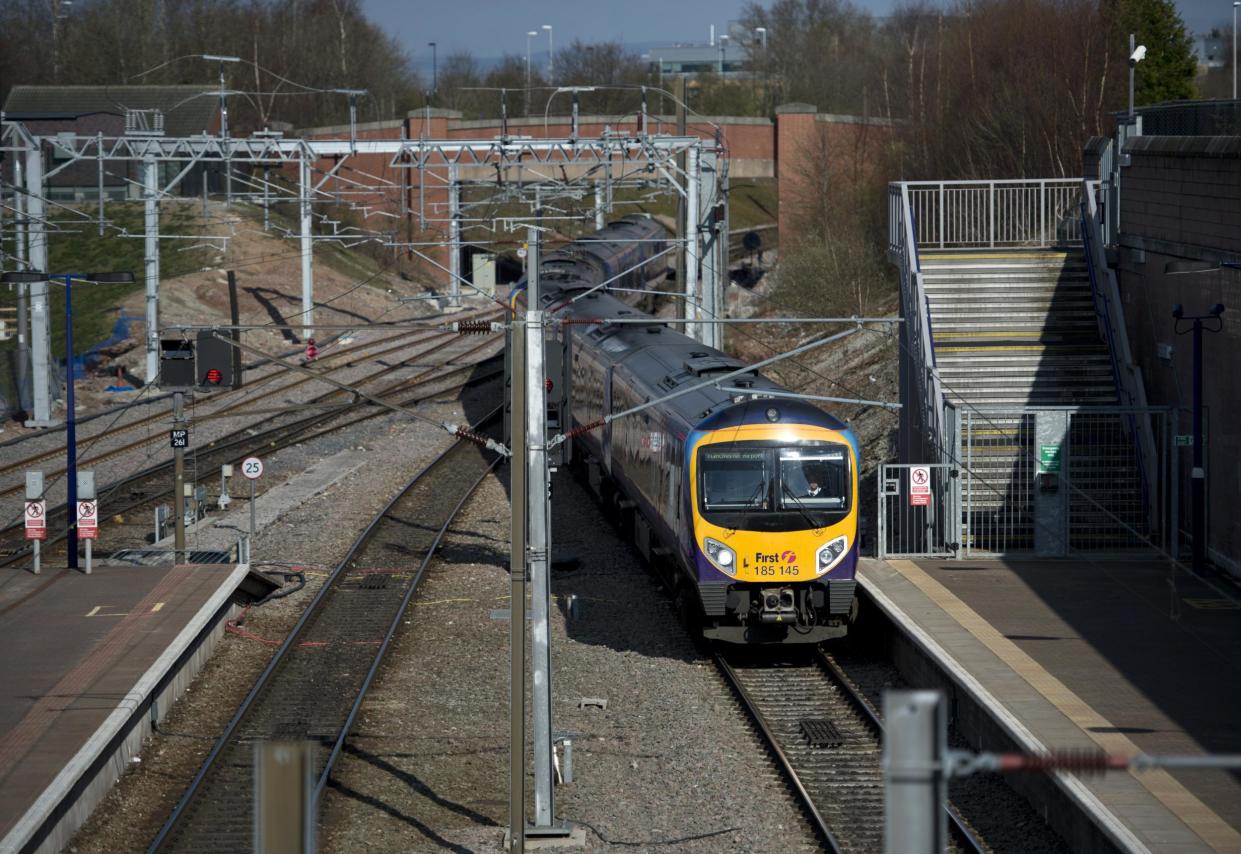Manchester-Leeds rail electrification is too hard and could be cancelled, Transport Secretary says

The project to electrify the entire train line between Manchester and Leeds could be cancelled because it is too hard, Transport Secretary Chris Grayling has said.
Chris Grayling said it was too difficult to run electric pylons along the whole line between the two cities, and that bi-modal trains could instead operate with diesel engines on part of the network.
Former Conservative Transport Secretary Patrick McLoughlin said two years ago that electrifying the line was “at the heart of the Northern Powerhouse” – what the Government calls its policies to improve the economy of the north of England.
“We don’t need to electrify all of every route. There are places that are built in Victorian times where it is very difficult to put up electric cables,” Mr Grayling said on a visit to Manchester on Friday, according to the Financial Times.
“If there are bits of the TransPennine network that are complicated to do and we have a bi-mode train, we can say: ‘Here is a section we can have a diesel.’ We will be electrifying TransPennine but we can do it in a smarter way.”
Mr Grayling also said a programme to upgrade the through platforms at Manchester Piccadilly station – which are currently overloaded and cause delays – would be reviewed.
The Manchester-Leeds scheme would be just the latest to be axed by the Government. The Sheffield, Swansea, and Windemere schemes were all quietly cancelled this week.
Diesel trains have higher operating costs, and are less efficient and worse for the environment than electric trains.
The possible abandonment of the project comes amid speculation that Prime Minister Theresa May and Philip Hammond are not committed to the Northern Powerhouse project, which was championed by George Osborne.
The mayor of Greater Manchester, Andy Burnham, has said downgrading the programme to boost the region’s economy would amount to a “betrayal of the north”.

The latest figures suggest that Government transport investment is substantially focused on London, with the capital getting more than half of the UK’s spending pot.
An analysis released earlier this year by think tank IPPR North found that £1,943 is spent per person in London on current or future projects, compared with an average of £427 per head in the North of England.

 Yahoo News
Yahoo News 
